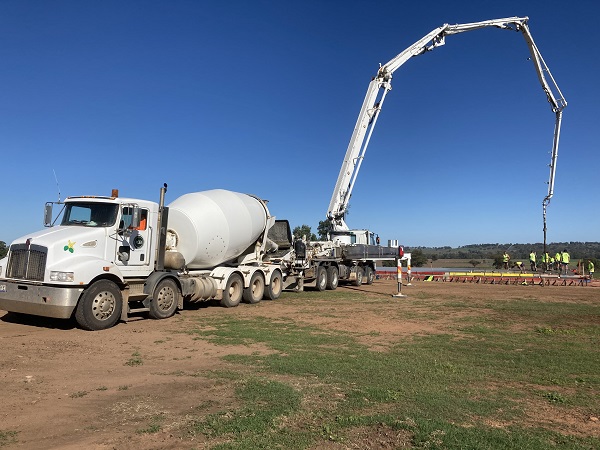Pumps are essential components in the construction industry, playing a pivotal role in various processes from managing groundwater to facilitating the application of grout.
Their versatility and efficiency make them indispensable for construction projects of all sizes.
In this article, we will explore the diverse applications of pumps in construction, highlighting their importance and the different types available to meet specific needs.
Understanding the Role of Pumps in Construction
Pumps are mechanical devices designed to move fluids, including water, mud, and other materials, from one location to another. In the construction sector, they serve multiple purposes, contributing to project efficiency and safety. Here are some key applications of pumps in construction:
1. Groundwater Management
Groundwater management is crucial in construction projects, especially in areas prone to flooding or where the water table is high. Submersible pumps and drainage pumps are commonly used to control groundwater levels, ensuring a dry and safe working environment.
These pumps remove excess water from excavations and trenches, preventing delays and reducing the risk of accidents.
Benefits:
- Enhanced Safety: Reducing water accumulation minimizes hazards associated with slippery surfaces.
- Improved Efficiency: Maintaining a dry worksite allows construction to progress without interruptions caused by water-related issues.
2. Concrete Mixing and Transportation
Pumps are essential in the concrete mixing and transportation process. Concrete pumps enable the efficient transfer of mixed concrete from trucks to the desired location on-site. This application is particularly beneficial for high-rise buildings and large-scale projects where accessibility may be limited.
Benefits:
- Precision Delivery: Concrete pumps allow for precise placement of concrete, reducing waste and ensuring structural integrity.
- Time Savings: The use of concrete pumps speeds up the pouring process, enabling quicker project completion.
3. Grout Injection
Grouting is a common practice in construction used for various purposes, including filling voids, stabilizing soil, and securing structures. Grout pumps are specifically designed to mix and inject grout materials into specified areas. This application is critical for foundation repairs, tunneling projects, and creating stable ground conditions.
Benefits:
- Effective Soil Stabilization: Grout injection enhances the load-bearing capacity of the soil, providing a stable foundation for structures.
- Versatility: Different types of grout can be used, depending on the project requirements, including epoxy, cement-based, and chemical grouts.
4. Dewatering Systems
Dewatering is an essential process in construction that involves removing water from a construction site to create a dry working environment. Dewatering pumps are employed to manage surface water and groundwater, allowing excavation and foundation work to proceed without hindrance.
Benefits:
- Reduced Construction Delays: Efficient dewatering systems prevent work stoppages caused by excess water.
- Enhanced Equipment Longevity: By keeping equipment and machinery dry, dewatering pumps help prolong their lifespan and reduce maintenance costs.
5. Water Supply and Distribution
Construction sites require a reliable water supply for various activities, including mixing concrete, dust control, and employee hydration. Water transfer pumps are utilized to transport water from external sources, such as lakes, rivers, or municipal supplies, to the construction site.
Benefits:
- Consistency in Operations: Ensuring a steady water supply is vital for maintaining workflow and productivity on-site.
- Adaptability: Water transfer pumps can be used for different applications, making them a valuable asset for any construction project.
6. Slurry Handling
In construction, especially in tunneling and drilling operations, slurry pumps are used to transport mixtures of water, soil, and other materials. These pumps effectively handle viscous fluids and are essential in applications such as drilling mud circulation and excavation support.
Benefits:
- Efficient Material Transport: Slurry pumps ensure that materials are moved quickly and efficiently, reducing downtime.
- Enhanced Stability: Using slurry helps stabilize excavations, reducing the risk of collapses and ensuring worker safety.
Choosing the Right Pump for Your Project
Selecting the appropriate pump for a construction project is crucial for maximizing efficiency and effectiveness. Here are some factors to consider when choosing a pump:
- Type of Fluid: Different pumps are designed to handle specific types of fluids. Consider the viscosity, temperature, and chemical properties of the fluid to select the right pump.
- Flow Rate Requirements: Assess the required flow rate and pressure for your application. Ensure that the pump you choose can meet these demands.
- Portability: Depending on the site conditions, you may need portable pumps that can be easily moved or positioned.
- Power Source: Consider the available power sources on-site, such as electricity or fuel, to ensure compatibility with the chosen pump.
Conclusion
Pumps are integral to the construction industry, offering versatile solutions for a wide range of applications from groundwater management to grout injection.
By understanding the various types of pumps available and their specific functions, construction professionals can optimize their projects, enhance safety, and improve overall efficiency.
As the industry continues to evolve, the role of pumps will remain vital in facilitating successful construction outcomes.
Embracing the latest pump technologies and best practices will ensure that construction projects are completed on time, within budget, and to the highest standards of quality.
Also Read
A deep dive into concrete curing compounds: Enhancing concrete durability
How drones are revolutionizing aerial surveying in construction

